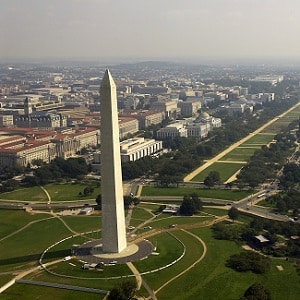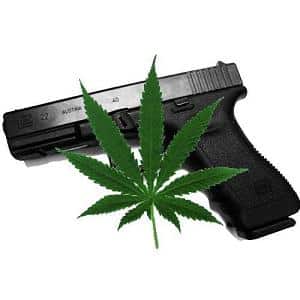 A far-reaching marijuana decriminalization law took effect in the District of Columbia yesterday that replaces jail time with a $25 fine for the possession of one ounce or less of marijuana. However, advocates emphasize that there is still more work to be done in the nation’s capital to reduce severe racial disparities in marijuana law enforcement by D.C. police officers.
A far-reaching marijuana decriminalization law took effect in the District of Columbia yesterday that replaces jail time with a $25 fine for the possession of one ounce or less of marijuana. However, advocates emphasize that there is still more work to be done in the nation’s capital to reduce severe racial disparities in marijuana law enforcement by D.C. police officers.
The Drug Policy Alliance has published an online resource that explains what the public needs to know about D.C.’s new marijuana decriminalization law.
Here are a few highlighted facts from our new overview of D.C.’s new decriminalization law:
- Under the new law, a person found in possession of up to one ounce of marijuana is issued a notice of violation that imposes a $25 fine for marijuana possession as well as forfeiture of any visible marijuana and any paraphernalia.
- Police officers are prohibited from using the smell of marijuana as rationale for conducting criminal searches. D.C.’s decriminalization law is the first in the country to provide this protection in statute.
- The possession of marijuana remains unlawful in D.C., and possession of marijuana weighing more than one ounce is still a crime in the District.
- Smoking or otherwise consuming marijuana in a public space is still a crime.
- While D.C.’s local police force, the Metropolitan Police Department, will enforce D.C.’s marijuana decriminalization law, a person caught by a federal law enforcement officer in D.C. may still be arrested and prosecuted under federal marijuana laws. In addition to patrolling federal lands and monuments in the District, numerous federal law enforcement agencies patrol D.C.’s neighborhoods and parks.
“We are hopeful that marijuana decriminalization will reduce excessive racial disparities in the enforcement of D.C.’s marijuana laws,” said Grant Smith, deputy director of national affairs with the Drug Policy Alliance. “D.C. residents should get to know their new marijuana decriminalization law and learn about the extent it will still leave citizens vulnerable to arrest for a small amount of marijuana, even as the law represents a major shift away from criminalization.”
Adopted by the D.C. Council in April, the “Marijuana Possession Decriminalization Amendment Act of 2014” replaces criminal penalties for possession of small amounts of marijuana with a $25 civil fine for possession as well as forfeiture of the marijuana and any paraphernalia used to consume or carry it.
By setting a $25 fine, which is the lowest civil fine for possession among eighteen states that have decriminalized small amounts of marijuana, D.C. lawmakers cited the need to be responsive to social factors such as homelessness in the District and high rates of poverty in Wards that have seen the greatest number of marijuana arrests. In order to reduce racially-biased stop-and-frisks, this new law contains a provision that prohibits a police officer from using the smell of marijuana as a pretext for conducting criminal searches — the first decriminalization legislation in the country to do so. The new law also shields people caught with a small amount of marijuana from collateral consequences like being denied public assistance or having their D.C. issued drivers’ license suspended or revoked. This decriminalization law is viewed by both D.C. council members and advocates as a model for other jurisdictions looking to reduce racial disparities in the criminal justice system.
“While marijuana decriminalization is undeniable progress, the real solution is to join states like Colorado and Washington and legalize marijuana,” said Grant Smith, deputy director of national affairs with the Drug Policy Alliance. “D.C. voters may have an opportunity to legalize both the possession and cultivation of small amounts of marijuana in November, and D.C. Councilmembers are eyeing legislation that would license and regulate adult marijuana sales in the District.”
Recent polls show broad support among District residents for following in the steps of Colorado and Washington and legalizing marijuana. D.C. voters will likely have the opportunity to decide Initiative 71 on the ballot this fall. If passed by D.C. voters,Initiative 71 would allow adults over the age of 21 to possess up to two ounces of marijuana on their person at any time, and allow for the cultivation of up to six marijuana plants at home.
The District of Columbia currently has the highest per capita marijuana arrest rates in the U.S. In 2010 African Americans in the District accounted for 91 percent of all marijuana arrests – even though African American and white residents use marijuana at roughly similar rates.
Source: Drug Policy Alliance – make a donation




